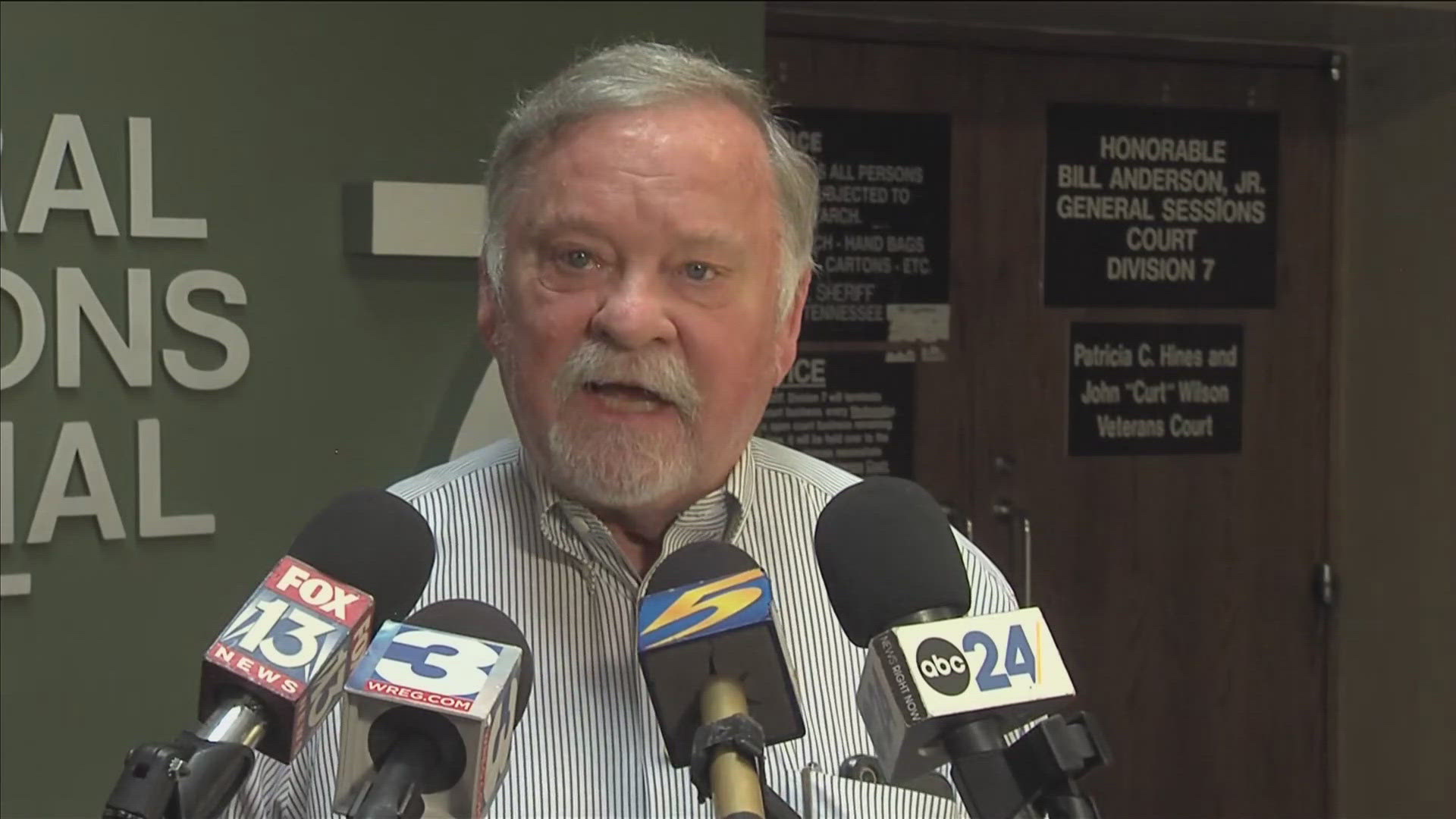MEMPHIS, Tenn. — Shelby County Judge Bill Anderson responded on Friday after he and other members of the county court system were sued by the ACLU for federal civil rights violations.
The lawsuit was filed on behalf of Memphis organization Just City, and it focuses on the new law, HB1719, which prohibits judges from considering an one's ability to pay when setting bail. That new law had just got into effect on the first of May.
“Tennessee’s law banning judges from considering an individual’s ability to pay bail is unfair and unconstitutional," said Craig Waldman Litigation Partner of Simpson Thacher & Bartlett LLP, one of the firms in the lawsuit. "The right to due process guaranteed under the Fourteenth Amendment is a bedrock of our justice system.”
The complaint, filed in federal court in the Western District of Tennessee, lists Presiding Shelby County General Sessions Criminal Court Judge Bill Anderson Jr., and the 14 judicial commissioners as defendants.
In a press conference on Friday, Anderson said he and the Judicial Commissioners took time to research and ensure the original law, which went into effect in February of 2023 and that took into account one's ability to pay, was constitutional.
According to Anderson, the standing bail order was agreed upon and signed by all the General Sessions Criminal Court judges, Shelby County Mayor Lee Harris, all the members of the Shelby County Board of Commissioners, Shelby County Sheriff Floyd Bonner Jr., former Shelby County District Attorney General Amy Weirich, among others.
Yet the May first law, put forward by West Tennessee legislators Brent Taylor (R) and John Gillespie (R), overruled that.
In a press conference, Anderson explained that one's ability to pay is "a very important factor" that judges need to be able to consider before setting bail.
"It is common sense to know that if I get charged with shoplifting and somebody else in this building gets charged with shoplifting, it's probably gonna be a heck of a lot of a easier for me to make whatever bail is set than it might be for that person and that is not fundamental fairness of a system."
And according to Anderson, county judges knew a possible lawsuit was coming.
In December of 2021 several Tennessee groups and attorneys, including the ACLU, sent a letter to all Shelby County judges threatening to sue, saying Memphis and Shelby County were not following proper procedure for bails.
"Over the period of a year and three months, there were representatives from every one of those offices and participants in this system that sat down at a table and discussed what needed to be done, in conjunction with the people who were going to sue us," said Anderson, saying that included the ACLU.
Anderson continued to say the process was not "hastily," claiming they worked until they made sure the order was "legally, constitutionally sufficient."
But the new law wiped away that effort and left the county exposed to this very suit.
The ACLU lawsuit cites that law as violating the Fourteenth Amendment by mandating unfair bail hearing procedures and discriminatory detention based on wealth.
“Bail reform works, and it was working in Shelby County. More Tennesseans were returning home to live peacefully in their communities,” said Trisha Trigilio, attorney for the ACLU, in a release. “This shameful legislation targets low-income and marginalized Tennesseans for pointless jail time. We will not allow Tennessee lawmakers to end successful bail reform for political gain.”
Furthermore, Anderson went on to warn that the lawsuit will be costly for the county.
"Guess whose gonna be on the hook for those, guess whose gonna be on the hook for everything if they prevail?" stated Anderson. "I live in Shelby County and I am a tax payer in Shelby County and I will be liable just like anyone of y'all who live in Shelby County." Anderson added that the money to pay for any necessary fees will be taken from the county budget.
Currently, the new law cannot be enforced as the complaint requests a preliminary injunction that would prohibit enforcement of the law by Sheriff Bonner, who is also one of the defendants.
"Make no mistake about it, the plaintiffs are coming at us with everything they got," said Anderson. "I would suspect they are [making] Shelby County, Tennessee an example that they hope the rest country will follow with the ruling from the federal court, whatever it is."

